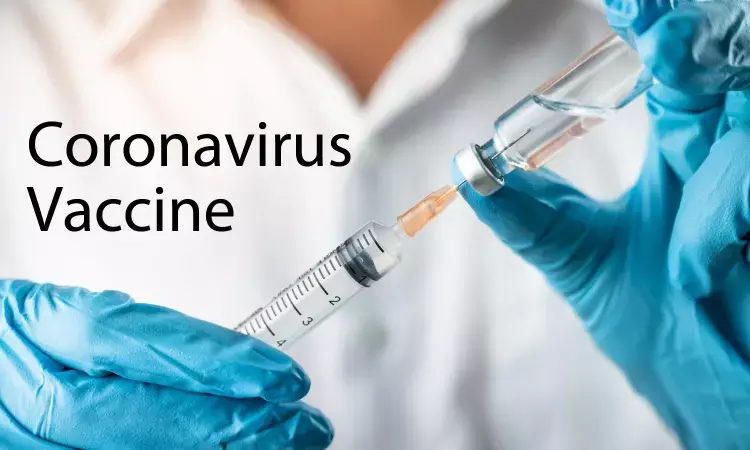- Home
- Medical news & Guidelines
- Anesthesiology
- Cardiology and CTVS
- Critical Care
- Dentistry
- Dermatology
- Diabetes and Endocrinology
- ENT
- Gastroenterology
- Medicine
- Nephrology
- Neurology
- Obstretics-Gynaecology
- Oncology
- Ophthalmology
- Orthopaedics
- Pediatrics-Neonatology
- Psychiatry
- Pulmonology
- Radiology
- Surgery
- Urology
- Laboratory Medicine
- Diet
- Nursing
- Paramedical
- Physiotherapy
- Health news
- Fact Check
- Bone Health Fact Check
- Brain Health Fact Check
- Cancer Related Fact Check
- Child Care Fact Check
- Dental and oral health fact check
- Diabetes and metabolic health fact check
- Diet and Nutrition Fact Check
- Eye and ENT Care Fact Check
- Fitness fact check
- Gut health fact check
- Heart health fact check
- Kidney health fact check
- Medical education fact check
- Men's health fact check
- Respiratory fact check
- Skin and hair care fact check
- Vaccine and Immunization fact check
- Women's health fact check
- AYUSH
- State News
- Andaman and Nicobar Islands
- Andhra Pradesh
- Arunachal Pradesh
- Assam
- Bihar
- Chandigarh
- Chattisgarh
- Dadra and Nagar Haveli
- Daman and Diu
- Delhi
- Goa
- Gujarat
- Haryana
- Himachal Pradesh
- Jammu & Kashmir
- Jharkhand
- Karnataka
- Kerala
- Ladakh
- Lakshadweep
- Madhya Pradesh
- Maharashtra
- Manipur
- Meghalaya
- Mizoram
- Nagaland
- Odisha
- Puducherry
- Punjab
- Rajasthan
- Sikkim
- Tamil Nadu
- Telangana
- Tripura
- Uttar Pradesh
- Uttrakhand
- West Bengal
- Medical Education
- Industry
Moderna vaccine mRNA-1273 shows early promise in human trial

mRNA-1273 is an mRNA vaccine against SARS-CoV-2 which was selected by Moderna in collaboration with investigators from the Vaccine Research Center (VRC) at the National Institute of Allergy and Infectious Diseases (NIAID), a part of the US National Institutes of Health (NIH).
New York: In a ray of hope against Covid-19, an mRNA vaccine under human clinical trial by Massachusetts-bases biotechnology giant Moderna has shown promising results by generating an immune-system response in the body to fight coronavirus.
mRNA-1273 is an mRNA vaccine against SARS-CoV-2 which was selected by Moderna in collaboration with investigators from the Vaccine Research Center (VRC) at the National Institute of Allergy and Infectious Diseases (NIAID), a part of the US National Institutes of Health (NIH).
Vaccine candidates from the NIH and Moderna Inc, and the one from the Oxford University, have been getting maximum attention as over 100 vaccines are currently under various stages of trial.
"At this time, neutralising antibody data are available only for the first four participants in each of the 25 µg and 100 µg dose level cohorts," Moderna said in a statement.
Consistent with the binding antibody data, mRNA vaccination elicited neutralising antibodies in all the eight participants.
"The levels of neutralising antibodies on day 43 were at or above levels generally seen in convalescent sera," explained the drug maker.
"mRNA-1273 was generally safe and well tolerated, with a safety profile consistent with that seen in prior Moderna infectious disease vaccine clinical studies," said the company.
Based on the interim Phase 1 data, the Moderna-led Phase 2 study will soon start, with the aim of selecting a dose for pivotal studies.
Moderna stock surged 26 per cent in trading before the market opened in the US. European markets were also up.
Moderna anticipates the dose for the Phase 3 study to be between 25 µg and 100 µg and expects Phase 3 trial initiation in July, subject to finalisation of the clinical trial protocol.
"These interim Phase 1 data, while early, demonstrate that vaccination with mRNA-1273 elicits an immune response of the magnitude caused by natural infection starting with a dose as low as 25 µg," said Tal Zaks, Chief Medical Officer at Moderna.
"When combined with the success in preventing viral replication in the lungs of a pre-clinical challenge model at a dose that elicited similar levels of neutralizing antibodies, these data substantiate our belief that mRNA-1273 has the potential to prevent COVID-19 disease and advance our ability to select a dose for pivotal trials," Zaks added.
Medical Dialogues Bureau consists of a team of passionate medical/scientific writers, led by doctors and healthcare researchers. Our team efforts to bring you updated and timely news about the important happenings of the medical and healthcare sector. Our editorial team can be reached at editorial@medicaldialogues.in.


